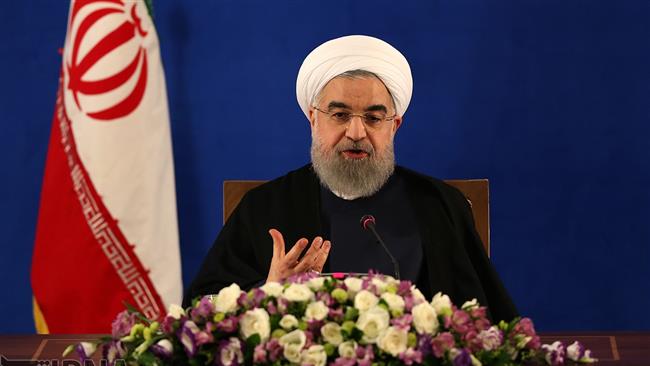Iran’s President Hassan Rouhani has hit back hard against his critics, including the Islamic Revolutionary Guards Corps, accusing them of “post-election envy” amid a fight over stakes in the Iranian economy.
In published remarks to his Cabinet, Rouhani said his opponents should not be upset by his administration’s achievements since “the success of the government is the success of the whole nation”. He declared that the July 2015 nuclear deal with the 5+1 Powers (US, UK, France, Germany, China, and Russia} was a “proud moment” in Iranian history.
The President then turned to the IRGC, and making an allusion to the defeat of the Islamic State in Iraq’s Mosul, said that “everyone knows that a small minority cannot make decisions for a whole nation”.
The quarrel between Rouhani and the Guards has surged publicly since the May 19 election, in which the President won a big victory over Ebrahim Raisi despite support for the conservative cleric from the Supreme Leader’s office and the Guards.
Rouhani has hit at the large holdings of the IRGC in the economy, criticizing the economic approach from 2006-2013 of the Ahmadinejad administration which allowed the Guards to bolster their position by purchasing large parts of State enterprises.
The President indicated that he will pursue a proper privatization diversifying the holdings and investment beyond the IRGC. He is also pursuing foreign investment links which could compete with the Guards’ interests.
In the past two weeks, the IRGC’s top commanders have stepped up their challenges. Overall commander General Mohammad Ali Jafari said the Guards’ position in the economy was one for security and not their profit. General Qassem Soleimani, the head of the Guards’ elite Quds Forces, warned, “No one should target the IRGC to weaken and attack it, since today the IRGC’s heart is devoted to a way forward for the country and the people”.
The Supreme Leader’s office backed the statements through Ayatollah Khamenei’s top military advisor, General Yahya Rahim Safavi: “Weakening the IRGC….[results in] the weakening of the politics and national security….If there is no security in the country, domestic and foreign investment [will not increase].”
The Rouhani Government has been pursuing foreign trade and investment deals for recovery of the Iranian economy, crippled by years of mismanagement and US-led sanctions. Earlier this month the Government finally secured a major oil deal, announcing a $4.8 billion contract with France’s Total.
However, Oil Minister Bijan Zanganeh repeated this week that $200 billion is needed for the oil and gas sector. The effort has been hindered by the opposition of the IRGC to a new Iran Petroleum Contract giving foreign firms equity shares in Iran’s oilfields.
Answering Parliamentary questions, Zanganeh challenged opponents to “directly say that [they] oppose foreign investment”.
On Tuesday, Rouhani used a speech to health care professionals to take another swipe at his detractors, “We must not be afraid in the face of a number who unfortunately have large megaphones in their hands.”
Hassan Khomeini, the grandson of the founder of the Islamic Republic, called on all sides to tone down their criticisms:
Having as little disorder as possible… is a basic condition [for] a healthy society. Much of the time we imagine that others have negative impressions or intentions towards us, but when we interact with one another we realize either that this was not the case or, that if it was, it was not to [so great] an extent.
(Hat tip to Iran News Round Up for translations)

